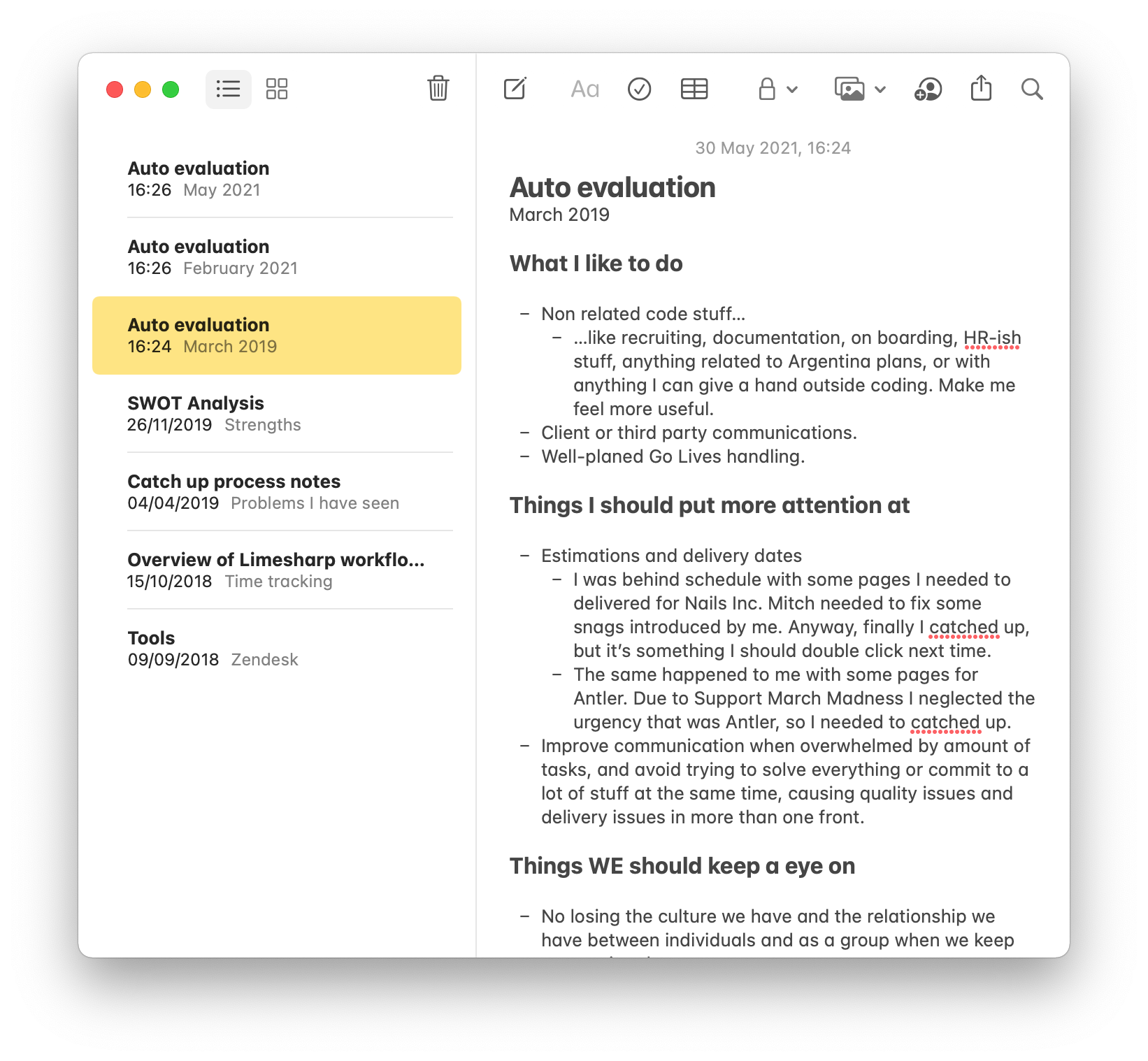Don't we love having a good performance review, from our bosses to ourselves, every now and then? Of course we do! Is that moment were we get to be told how great of an employee we have been (finger cross that's the case) and to potentially get a salary raise (and I don't have to ask how much we love that).
Thing is that our performance review, appraisal, catch up, or whatever you would like to call, it is about having a conversation where you should also bring something to the table.
Why?
This is an opportunity to not only get feedback from your company, but also to help shape your role into it, to define a roadmap for your own career for the next cycle up to, let's say, your next performance review.
When you are not part of this conversation, when you are just a listener, you leave your future in the company up to whatever other decides for you. If you are "sort of lucky", the company you work for might already has defined a plan for you, and if you are "very lucky" you will like that plan. You would be betting, twice.
But, again, that's oddly the case when we don't have a say for our career.
How?
What I like to do for basically all meetings I have (and my performance review is no exception) is come prepare with notes and bullet points to discuss.
For this particular scenario I recommend doing a self-evaluation, ahead of the meeting, to know were we stand and were we would like to go from there.
Depending on our role in the company we can also cover where the company stands, where we would like it to go, and how we think we can get there.

I divide my self-evaluation, self-assessment, auto-evaluation, or, again, whatever you would like to call it, into different sections starting with "What I like to do and what I don't like to do".
This is a reflection time opportunity for me to know, up to this moment, after everything I went through from the last catch up, of all the things I've been doing so far what I actually like to do, and if I think I would like to continue doing them.
For example, let's say I've been doing a lot of documentation since the last time we had a catch up. Did I like that? Or was it more of an emergency role I had to take on that I would like to dodge from now on? Can I think of any available role I might like to fulfill with this skill that I think I'm good at and also like to perform?
The "what I don't like to do" part is to identify if the tasks I've been performing were those sort of a one-time-only tasks due to an emergency, or if they are in fact part of my job description.
If the stuff you don't like to do outnumber the things you do like, then you have a bigger problem here. But that's just another good idea for doing a self-evaluation: you can get yourself aware of how happy (or not) you are at your job.
The second section is called "Things I should put more attention at", which basically means "what I've been doing wrong" (but let's keep a positive tone here and not sound that radical). Now is when I need to be truly honest with myself in order to be able to identify where I have room to improve at work.
It's not only about telling where I could be better, but also to discover why I wasn't doing my best so far, and what I think could increase my performance on these areas.
I consider important to demonstrate that I'm able to tell when I'm not at my best before somebody points that out to me, and that I'm also capable of being part of "fixing" this situation with ideas and suggestions of my own.
Third section is about "Things we should keep an eye on", which involves the company itself and it's my chance to talk about how I see the place I work in.
You are, supposedly, at a different position than your superiors, therefore you might be able to provide another vision at how things are: what do you think the company is doing well, what things would be good to avoid losing, and what things do you think the company should put more effort in.
Clearly, this would be attached to your bosses' willingness to get some feedback on a meeting designed mainly to provide it to you. But, if you have the chance to give it a shot, just go for it.
Since my role is more technical I do have a fourth-ish section which is more like a twist for the last one, and I call it "Things we should keep an eye on... from a technical point of view" (the title speaks for itself).
This is my opportunity to say where I would like things to go, for the company, on the technical side, which is allegedly my area of expertise.
Following on the example of me doing a lot of documentation, I can bring ideas on how we can make this behaviour part of the company's culture.

Up there you can see a real self-evaluation I did on March 2019 before a performance review I had, and two more on the sidebar.
Keeping them works as a log to retrace my steps when I feel overwhelmed to assess if I'm on track regarding my latest self-evaluation of my performance or if I need to adjust something.
Basically, my idea is to avoid working blindly from one catch up to the other.




